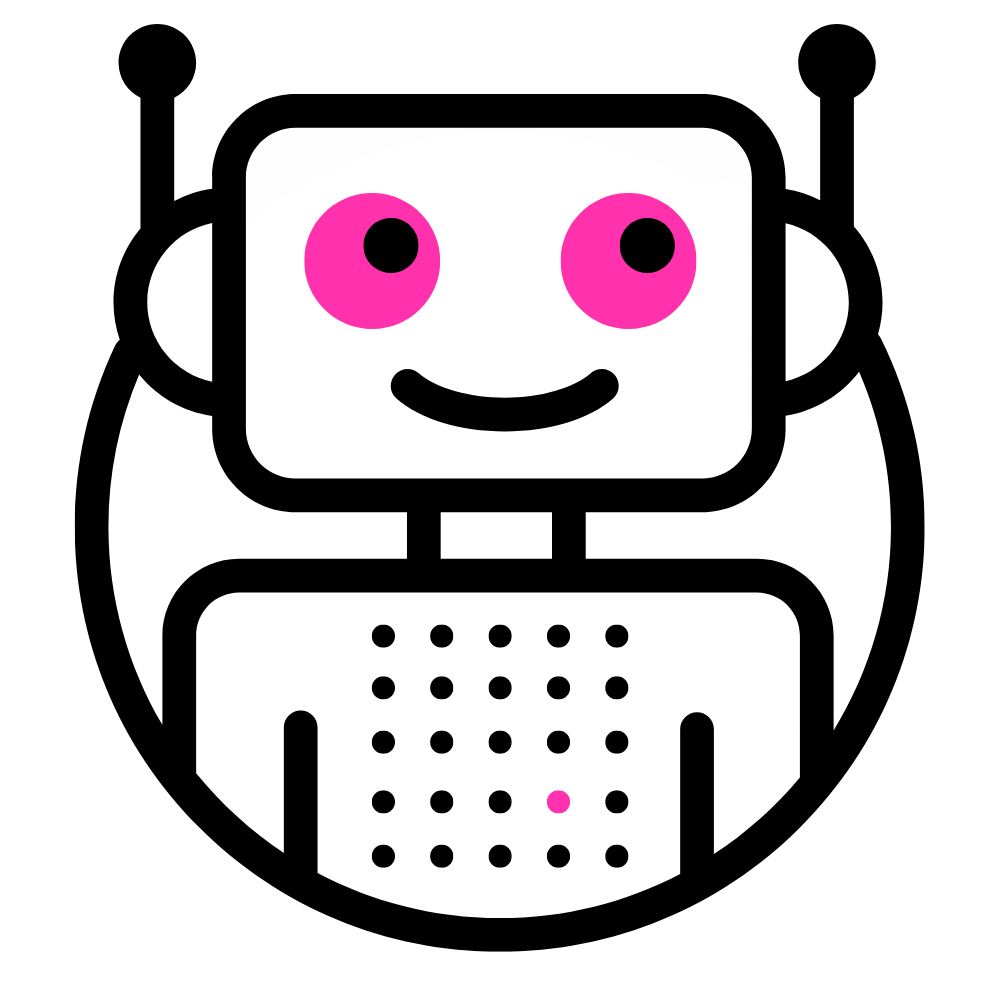The global AI market, predicted to reach $126 billion by 2025 according to a study by Gartner, underscores the newfound critical importance of artificial intelligence in modern business operations. However for many businesses, building an in-house AI team can be a daunting and costly endeavor. A recent McKinsey study reveals that the average cost of hiring a single AI specialist is a staggering $150,000 annually. This coupled with a persistent talent shortage leaves many companies to find that outsourcing AI development is the strategic solution, offering significant advantages over building an in-house team. In this article we dive into five compelling reasons why businesses should consider this approach.
xyonix solutions
Learn more about Xyonix's Custom AI Solutions, the best way to ensure your company isn't falling behind the AI curve.
1. Cost Efficiency
Creating an in-house AI team demands substantial upfront investments—not just in salaries, but also in infrastructure and training. Outsourcing presents a more cost-effective alternative. Businesses can bypass costly recruitment fees, avoid the expense of high-end hardware and software, and potentially reduce overall project costs.
Consider this: the average salary of an AI specialist in the US exceeds $120,000 per year, according to Glassdoor. But even $120,000 a year added to this the costs of training, software, and infrastructure, quickly makes that total skyrocket. Through outsourcing, businesses can tap into top-tier talent and advanced technology without the hefty price tag.
A comprehensive study by Deloitte shows that businesses can save up to 60% in operational costs by outsourcing AI development.
These savings come from reduced labor costs, elimination of recruitment and training expenses, and access to state-of-the-art AI tools and infrastructure–without capital investment.
In addition, outsourcing mitigates the financial risk associated with AI endeavors. These AI projects can be unpredictable, and an in-house team represents a fixed cost that can strain resources if the project faces delays or fails to meet objectives. Outsourcing offers a variable cost model, aligning expenses with project milestones and deliverables, thus providing financial flexibility.
2. Access to Expertise
The demand for skilled AI professionals far outstrips the supply. Burning Glass Technologies reports a wide talent gap, with AI job openings outnumbering qualified candidates by a ratio of 2 to 1. Outsourcing allows businesses to access a global pool of specialized AI developers, ensuring that they can leverage the best minds in the field.
Not to mention, AI development is a rapidly evolving field with new algorithms, frameworks, and tools emerging constantly. Outsourced AI partners stay updated with these technological advancements, ensuring that your AI solution uses the most relevant up-to-date technologies available. Reputable AI consultancies continuously invest in research and development, keeping their teams at the forefront of the AI landscape.
AI consultants often have teams with diverse skill sets that span various subfields, from natural language processing (NLP) and computer vision (CV) to predictive analytics and robotics. This diversity allows businesses to tap into a breadth of knowledge that would be challenging to recreate in-house. For example an AI outsourcing firm may have experts in reinforcement learning, deep learning, and machine learning operations (MLOps), providing comprehensive solutions that a single in-house team might struggle to match.
In addition, these independent AI providers often have partnerships with leading technology providers and academic institutions, ensuring they have access to the latest research, tools, and best practices. This connection to cutting-edge AI developments means your projects benefit from the latest innovations and methodologies.
3. Faster Implementation
Speed is paramount in today’s competitive landscape. Forrester Research found that companies leveraging outsourced AI solutions achieved a significant time-to-market advantage, reaching their target markets 20% faster than those relying solely on internal teams. Outsourcing partners have established development processes and readily available expertise, which significantly expedite project completion.
Developing AI solutions in-house can be time-consuming, taking months or even years. In contrast, outsourcing can slash project timelines by up to 50%, according to Deloitte.
This acceleration allows businesses to quickly deploy AI-driven innovations and maintain a competitive edge.
AI consultancies typically have tried-and-true methodologies and frameworks that streamline the AI development lifecycle. These methodologies encompass everything from initial data collection, to preprocessing to model training, to validation, and deployment. Having these processes pre-established, can help businesses avoid common pitfalls and delays associated with in-house development.
Consider this example: a global telecommunications company based in Europe, with nearly 350 million customers and annual revenues exceeding €30 billion. This company needed to streamline its application delivery platform operations. By outsourcing to an AI service provider, the company was able to oversee daily operations, including tuning, capacity planning, infrastructure upgrades, and strategic roadmaps. This partnership reduced integration efforts and improved troubleshooting capabilities, ultimately enhancing the quality and time-to-market of their IoT applications. The leadership now has peace of mind that its IoT application delivery platform and support systems are always running at peak performance, enabling the software engineering team to increase efficiencies and productivity significantly.

Need help answering the following questions?
Talk it over with our AI bot Xybo.
4. Scalability
As AI becomes more integrated into business operations, companies' needs will inevitably change. Gartner predicts that by 2025, 75% of enterprises will transition from piloting AI projects to full-scale operationalization.
Outsourcing AI development provides the flexibility to scale your team up or down seamlessly, adapting to evolving project requirements without the burden of fixed staffing costs.
Outsourcing allows businesses to scale their AI efforts based on demand. Companies that outsource can scale their AI operations by up to 30% more efficiently, according to McKinsey. This flexibility is crucial as businesses navigate the dynamic landscape of AI integration, ensuring that they can meet changing needs without the constraints of maintaining a large in-house team.
Scalability in AI projects often involves not just scaling the team size, but also scaling its computational resources. AI models, particularly deep learning models, require substantial computational power for training and inference. Outsourcing partners typically have access to advanced computational infrastructure, such as high-performance computing clusters and cloud-based solutions, enabling businesses to scale their AI projects without investing in expensive hardware.
Not only this, but scalability includes the ability to pivot and adapt to new business requirements or market conditions. An outsourced team can quickly reallocate resources, add new expertise, or shift project focus as needed. This agility is especially valuable in the fast-paced AI landscape, where new opportunities and challenges frequently arise.
5. Focus on Core Competencies
Outsourcing AI development allows businesses to refocus their internal resources on core competencies and strategic goals. A Harvard Business Review study found that businesses outsourcing non-core functions report a 20% increase in overall productivity, freeing up valuable time and talent for other various strategic initiatives.
Beyond the immediate productivity gains, outsourcing AI allows businesses to invest more in their other initiatives and core competencies. Internal teams can focus on what they do best—whether that's product development, customer service, or market expansion—without being bogged down by the complexities of AI development.
Outsourcing also reduces the administrative burden of managing a large AI team. Recruitment, training, and ongoing management of AI professionals require significant time and resources. By outsourcing, businesses can alleviate these burdens and concentrate their efforts on driving growth and innovation in their primary areas of expertise.
Conclusion
While building an in-house AI team can be ideal for some companies, outsourcing offers a compelling alternative for many. By leveraging the expertise and resources of a qualified outsourcing partner, companies can access a wider talent pool, achieve cost savings, and accelerate their AI development journey. However, careful due diligence is crucial when selecting an outsourcing partner. Look for firms with a proven track record, a strong understanding of your specific industry, and a commitment to ongoing innovation. By making a strategic decision to outsource your AI, you can gain a competitive edge and unlock the transformative potential of artificial intelligence for your business.
Request a free consultation and learn how advanced AI can accelerate your business:
Want to learn more about leveraging AI in your business?
References
Glassdoor. Data AI Specialist Salaries. Retrieved from (https://www.glassdoor.com/Salaries/data-ai-specialist-salary-SRCH_KO0,18.htm)
UST. Multinational Mobile Services Company Outsourced IoT Application Delivery Platform Operations Managed Services Model Improved Quality, Efficiency, and Time to Market. Retrieved from (https://www.ust.com/en/insights/multinational-mobile-services-company-outsourced-iot-application-delivery-platform-operations-managed-services-model-improved-quality-efficiency-and-time-to-market)
Burning Glass Institute. Generative Artificial Intelligence and the Workforce. Retrieved from (https://www.burningglassinstitute.org/research/generative-artificial-intelligence-and-the-workforce)
Gartner. (2024). Gartner Says 75 Percent of Enterprise Software Engineers Will Use AI Code Assistants by 2028. Retrieved from (https://www.gartner.com/en/newsroom/press-releases/2024-04-11-gartner-says-75-percent-of-enterprise-software-engineers-will-use-ai-code-assistants-by-2028)
Gartner. (2021). Gartner Identifies Four Trends Driving Near-Term Artificial Intelligence Innovation. Retrieved from (https://www.gartner.com/en/newsroom/press-releases/2021-09-07-gartner-identifies-four-trends-driving-near-term-artificial-intelligence-innovation)
Harvard Business Review. (2018). Artificial Intelligence for the Real World. Retrieved from (https://hbr.org/2018/01/artificial-intelligence-for-the-real-world)
Microsoft Work Lab. AI at Work Is Here—Now Comes the Hard Part. Retrieved from (https://www.microsoft.com/en-us/worklab/work-trend-index/ai-at-work-is-here-now-comes-the-hard-part?)
Paradox.ai. Harvard Business Review: How TA is Transforming with AI and Automation. Retrieved from (https://www.paradox.ai/report/harvard-business-review-how-ta-is-transforming-with-ai-and-automation)
McKinsey & Company. (2023). The Economic Potential of Generative AI: The Next Productivity Frontier. Retrieved from (https://www.mckinsey.com/capabilities/mckinsey-digital/our-insights/the-economic-potential-of-generative-ai-the-next-productivity-frontier#introduction)
McKinsey & Company. AI Reinvents Tech Talent Opportunities. Retrieved from (https://www.mckinsey.com/about-us/new-at-mckinsey-blog/ai-reinvents-tech-talent-opportunities)
Deloitte. (2022). Global Outsourcing Survey 2022. Retrieved from (https://www2.deloitte.com/content/dam/Deloitte/us/Documents/process-and-operations/us-global-outsourcing-survey-2022.pdf)











